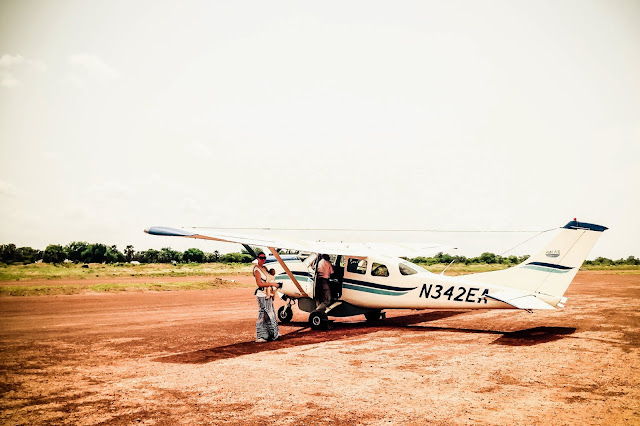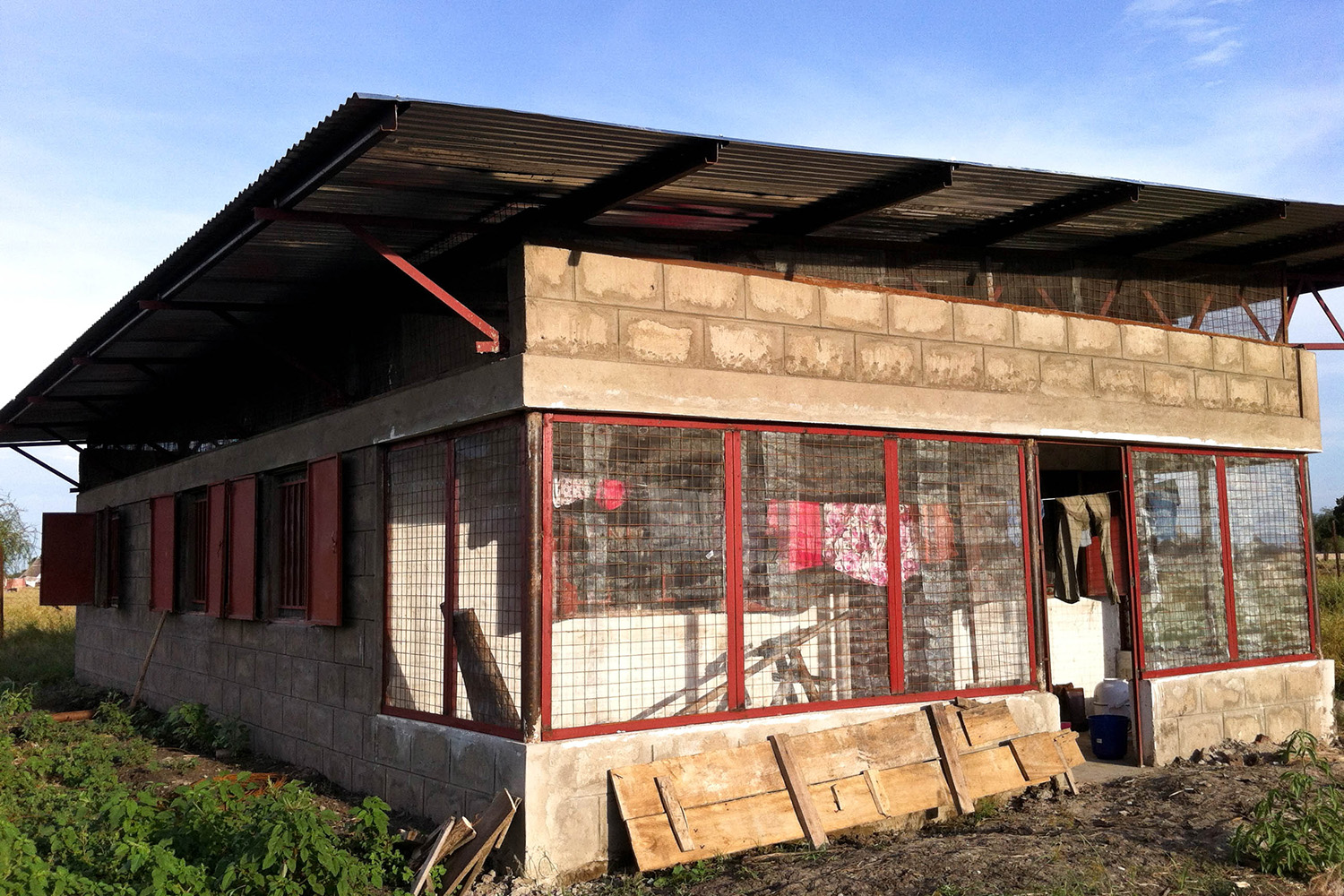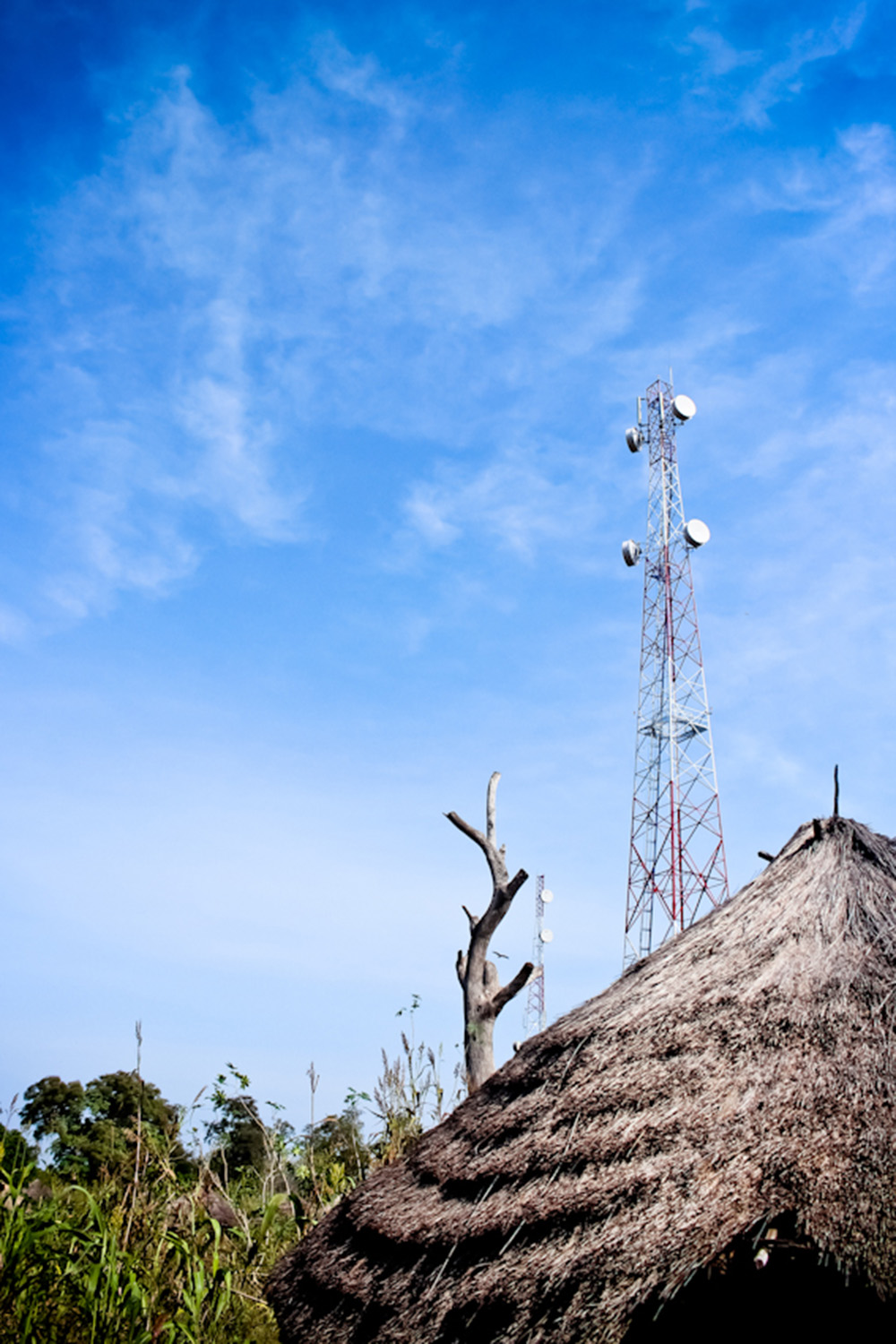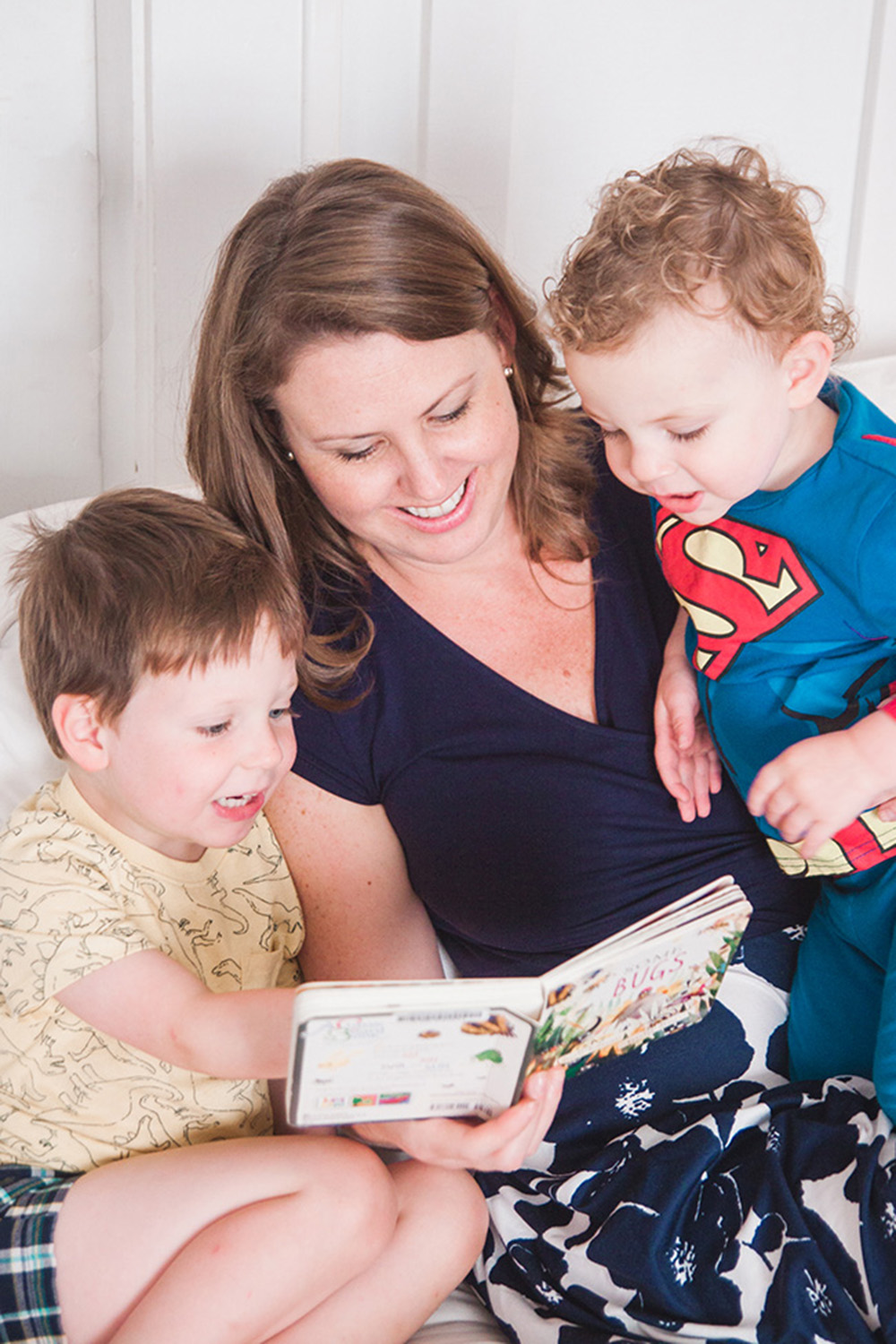let's be social!
It started with a fever on Sunday. It wasn’t terribly high, only 102 degrees, but there it was. Our baby boy whimpering and running hot with this fever on an already scorching day in Tonj. So on Sunday afternoon when his fever climbed, I tried to swat away at the rising fear. A fever in South Sudan? It could be a virus, but it could be malaria (uncomplicated or the dreaded and deadly cerebral malaria), it could be a kidney infection, it could be typhoid, it could be yellow fever, leishmaniasis, and on and on. We started with some paracetamol, a malaria rapid test, and a urine dipstick test. The paracetamol did nothing, and both the tests were negative for infection.
Monday morning we sat at the clinic in Tonj as our friend and local missionary doctor, Jono, explained that the physical exam had revealed no problems, and when there are no simple explanations for a fever in South Sudan, we suspect malaria. So away we went to the government hospital for a blood smear, the supposed Gold Standard for malaria testing, to confirm his suspicion. We came back with a positive malaria test, in fact (+++), which is the highest positive diagnosis they can give.
Definitely malaria.
So then there was an injection. Jono had explained that the malaria in Tonj is incredibly aggressive, sometimes causing seizures in as little as 24 hours following symptoms, and he’s seen a number of babies die because they didn’t make it to the clinic in time. He didn’t want to take any chances, so he ordered the first dose of the malaria treatment to be given via injection so it would go immediately into his bloodstream and get to work.
That afternoon the fever subsided. We continued with the oral course of treatment and expected to see improvement rapidly. And we did. Clark spent the rest of Monday fever-free, and he was playing and babbling like usual. We sighed in relief and praised God for access to a clinic, even in the bush of South Sudan.
Then there was another fever. This time not as high, but it started in the wee hours Tuesday morning and lasted until the afternoon. We continued to give paracetamol, cover him with damp cloths, and try to make him comfortable. I was worried, but he’d only been on the malaria treatment for 24 hours, so I knew we needed to give it some time. And since he was acting generally okay between fevers, I was able to remain rational and calm.
It was Tuesday night as we went to bed that the calm façade began to crack and my fear began to rise in earnest. His fever came back, and this time wasn’t responding to the paracetamol. As I laid awake beside him, feeling the heat radiate from his little body, I couldn’t help but worry about what might be the cause. I watched the clock hit midnight, then 1:00am, then 2:00am. Blaise finally convinced me to get some sleep, so we set an alarm to check on him at 3:30.
I woke up to Clark whimpering at 3:00am. I felt him and he was hotter than ever. The thermometer (under the arm) read 103.4, but I knew that had we taken his temperature rectally it would have been higher. Clark was lying perfectly still, eyes open and glazed over, and breathing rapidly. I knew we couldn’t wait.
At 3:30am, we pulled out onto the road headed into the village. I wondered aloud if we should take one of our guards with us in case we should run into a “roadblock,” but we were in a hurry. I was exhausted, but running on adrenaline. Clark was still awake, but lying limp against me. I was running through all of the possibilities in my head, and I didn’t like what I was recalling. One of the possibilities that kept creeping in was a malarial co-infection, not unheard of in children and babies, and all too often with terrible outcomes. Could that be what we were dealing with?
The patient room was dark except for our headlamps as Jono checked him over again. Still no ear infection, strep throat, swollen lymph nodes, vomiting, or diarrhea. Just a persistent fever, despite the malaria treatment. The clinical officer pricked Clark’s heel and ran another rapid malaria test, which came back negative. At that point, he announced that we were likely dealing with complicated malaria. Jono wasn’t as sure. He explained that rarely, patients don’t respond to the first-line treatment, so they move along to quinine to treat the malaria. We could do that. We could also assume an additional infection and begin with an injection of a very strong, broad-spectrum antibiotic to kill whatever infection there might be, and follow that with seven days of antibiotics. But Jono explained that’s really bad medicine, and given that we had the option of leaving to Kampala, that’s what he recommended. We didn’t know what we were dealing with, and while he vocalized that it could be a virus that will just run its course, it could be something more serious.
We left the clinic at 5:00am to head back home and wait for Jono’s call. He was going to wait until a reasonable hour, then call Clark’s pediatrician in Kampala to get his opinion. He would let us know.
We fell asleep for a few hours. I awoke Wednesday morningto Blaise telling me that Jono had talked to Dr. Michael and he agreed that getting to Kampala for more testing as soon as possible would be wise. Blaise had already talked to Kerry, and our flight would be arriving at 1:30pm.
We had about 3 hours until we would be evacuated.
It was at that point that the fits of weeping began. We had no idea what we would find out in Kampala, how serious it would be, or what kind of timeline we would have. So we decided to err on the side of caution and pack everything we would want to keep if we were leaving for good. And say our forever goodbyes. We didn’t have that option when we left Nasir, and we didn’t want to repeat that scenario. But it was excruciatingly painful. It was also the most chaotic morning we’ve had in a very long time. We were frantically running around our house, throwing things into trunks, trying to weigh whether things were important enough to take or if we could live without them. I had fixed a bowl of oatmeal for breakfast, but I walked around for three hours with the bowl of half-eaten oatmeal in my hand. I would sit down to take a few bites, start crying, get up and pack some more, go talk to Kate, feed Clark, pack some more, and repeat. I was a hot mess.
I wept and packed and soon we were driving to the airstrip. We arrived just minutes before the plane. Jay, our AIM AIR pilot, explained that if we wanted to make it all the way to Kajjansi (outside of Kampala) that day, we were on the tightest schedule ever. Within minutes we had the Cessna 206 loaded, we were climbing aboard, waving goodbye to our friends and teammates, and taking off.
The flight was the very worst I’ve ever experienced, both because I was an emotional disaster and because we hit a storm that–and I’m not exaggerating–was so bad I was absolutely sure we were going to die (I’m going to blog about that separately, because it’s a story that needs to be told). Clark was still quite lethargic and he slept the entire trip to Kampala. However, everything else went smoothly…the immigration official was at his desk in Rumbek, South Sudan (we had only 20 minutes to clear immigration if we were to make it in time), the refueling and immigration in Arua, Uganda took about 20 minutes, and we landed at Kajjansi just 10 minutes before sunset–Jay’s deadline. God had certainly orchestrated our leaving.
Three hours later we were at Nakasero Hospital (where Clark was born) sitting with his pediatrician and explaining everything that had happened in the last few days. He ordered no fewer than 10 different tests to cover our bases, and sent us to the lab.
By 11:30pm, we finally had the initial results from the blood test. Clark was negative for malaria, which means that he was misdiagnosed in Tonj at the government hospital, also explaining why we got two negative rapid malaria tests (usually quite reliable). Yet we have no conclusive answers. There’s definitely infection in his body, but Dr. Michael said we’ll need to see if anything grows in the blood culture before we know if it’s viral or bacterial and know how to treat it.
What we do know is that given the circumstances, treating Clark for malaria was absolutely the right thing to do. In malaria endemic areas, the general rule is when in doubt, treat. We also know that evacuating was the right thing to do. We still have no idea what’s causing the fever, now on Day 5, and we couldn’t take the risk of missing something serious.
So that’s where we are. We should have the results from the culture within the next couple of days, and Dr. Michael said those results will guide our next steps. We would love your prayers for our little family: healing for Clark’s body and healing for our hearts. I’ll blog more on the emotional impact our evacuation has had on us soon.






